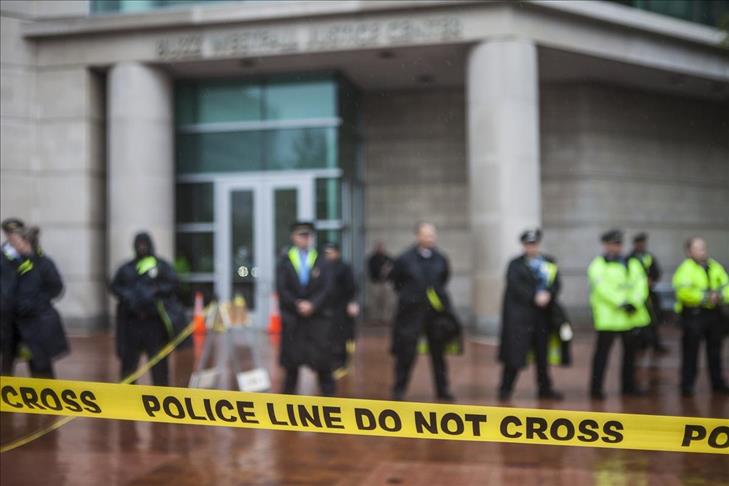
MELBOURNE, Australia
Australia's federal police commissioner has defended the force's role in the arrest of two nationals who went on to be executed by Indonesian firing squad for drug smuggling.
In a press conference Monday, Commissioner Andrew Colvin said it only tipped off its neighbor about the drug syndicate Andrew Chan and Myuran Sukumaran were heading as Australian police did not have enough evidence to arrest the men themselves.
"At the time, we were working with a very incomplete picture. We didn't know everybody involved, we didn't know all the plans, or even what the illicit commodity was likely to be," he said.
"At this time AFP [the Australian Federal Police] consulted and engaged our Indonesian partners and asked for their assistance... It was operationally appropriate and it was consistent with the guidelines as they existed then."
Sukumaran and Chan -- both from Sydney -- were the ringleaders of a group dubbed the Bali Nine, who attempted to traffic more than 8 kilograms (18 pounds) of heroin valued at about A$4 million ($3.2 million) from Indonesia to Australia in April 2005.
They were sentenced to death by firing squad in 2006, with their pleas for clemency rejected Dec. 2014 and Jan. 2015, respectively.
After all their legal challenges failed, they were executed alongside six other drug convicts on an Indonesian penal island last Wednesday.
The senior police officer that approved the transfer of information to Indonesia said Monday that he had agonized over the decision, but acted in the interests of victims of the drug trade.
"I've agonized over it for 10 years now, and every time I look back I still think it's a difficult decision," Deputy Commissioner Michael Phelan told reporters.
"But given what I knew at that particular time, and what our officers knew, I would take a lot of convincing to make a different decision."
He said he had initially intervened to prevent an earlier move to hand over the information related to the case, as he was aware of the possible consequences.
"What was going through my mind was very much around what I wanted to achieve at the end here for the Australian public," he said.
"I've seen the misery that drugs causes to tens of thousands of families in this country."
Colvin said that despite guidelines being strengthened relating to how the police deal with countries that have the death penalty, it was still possible that future investigations could result in the execution of an Australian national overseas.
"It's substantially different insofar as it asks us to consider at a much earlier stage whether we will share information well before arrest. That wasn't the case in 2005. It is the case now."
He said that while he wished the situation with Indonesia would never happen again, that was not possible.
"No two scenarios are same. When we commence an investigation we cannot always predict where that investigation may lead," he said.
Colvin underlined that more than 4,000 heroin-related deaths had occurred in Australia during the past four years, and it was a priority that police continued to cooperating with its neighbors to end the drug trade.
"We have to weigh up the impact of narcotics in this country ... this is having a detrimental effect on the community," he said.
"We have to protect all members of the community. This was a very difficult decision... Operationally, it was a sound decision but that doesn't mean there were not human factors in it."
Anadolu Agency website contains only a portion of the news stories offered to subscribers in the AA News Broadcasting System (HAS), and in summarized form. Please contact us for subscription options.

